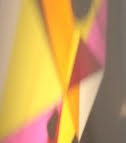
a few weeks ago, i posted the artwork for a frank lloyd wright bubble gum card that was part of a set of famous americans from the early 1960's. a few days ago i remembered another bubble gum card anomaly... this 1934 "sky birds" bubble gum card of gabriel d'annunzio, pictured as a famous aviator, but on the back also referred to as the "poet flyer".
to the best of my knowledge, like wright the architect, d'annunzio was the only poet to appear on a bubble gum card.
when i discovered the card, years ago, i thought the poet simply shared a name with a famous WWI italian fighter, but d'annunzio seems to have led quite a complex life. the back of his short story collection "nocturne and five tales of love and death", tells the reader he was "flamboyant, unquestionably brave, eloquent, seductive - an inspirer and leader of men, astonishingly successful with women" (not exactly the usual bio of a poet born in 1863 and published by academic and university presses...).
i first came upon his work in the mid-1980's through the marlboro press, who published the short story collection mentioned above, as well as many great works in translation. it was through marlboro that i discovered writers like hermann broch and hans fallada. d'annunzio's short stories were great, but i remember having a deeper relationship with his dark novel of failed love, "the triumph of death".
according to the backs of both books, d'annunzio's work was championed by a number of great writers, including james joyce, eugenio montale, andre malraux, and paul valery, which probably means one could also add the phrase "writer's writer" to his already swollen biography.
here's a large fragment of a one of d'annunzio's longer poems, that i particularly like because of its relationship to listening and nature sounds...:
hush. on the edges
of the woods i can't
hear words
you say, human words;
but i hear newer words,
that drops of water and leaves speak
far away.
listen. it's raining
from the scattering clouds.
it's raining on the
brackish, burnt-up tamarisks,
it's raining on the
scaly, bristling pines,
it's raining on the divine
myrtles,
on the broom trees gleaming
with their clumps of flowers,
on the matty junipers
and their sweet-smelling pips,
it's raining on our sylvan
faces,
it's raining on our bare
hands,
on our thin
clothes,
on the fresh thoughts
which the mind uncovers
in her new freshness,
on the lovely fable
that yesterday
enchanted you, and today enchants me,
can you hear? the rain is falling
on the solitary
greenness
with a crackling that hangs
and varies in the air
with the thickness and the sparseness
of the greening.
listen. in reply
to the crying, the song of
cicadas
which the south-wind crying
cannot frighten;
nor can the ashy sky.
and the pine tree
has its sound, and the myrtle
has its sound, the juniper has
still another, diverse
instruments
under fingers without number.
and we
are immersed in forest
spirit,
living of wood livingness;
and your longing face
is wet with rain
like a leaf,
and your hair
smells like
shining broom flowers,
o earthly creature
name
hermione.
listen, listen. the chord
of airy cicadas
little by little
hushes
under the growing cry;
but now a song mixes in,
more raucous
than what rises from below,
from wet, distant shade.
hollower and hoarser
it grows weak, it dies.
alone one note
still trembles, dies,
rises, trembles, dies.
the voice of the sea cannot be heard.
and now on all the leafy branches
is heard to stream in torrents
the silver rain
that cleans,
the vast outpouring that varies
the thickness
and the sparseness
of the greening.
listen.
air's daughter
is silent; but the distant daughter
of the mud,
the frog,
is singing from the deepest shadows,
who knows where, who knows where!
and it's raining on your lashes,
hermione.
Labels: bubble gum cards, field recordings, gabriel d'annunzio, nature sounds, poems, poets




